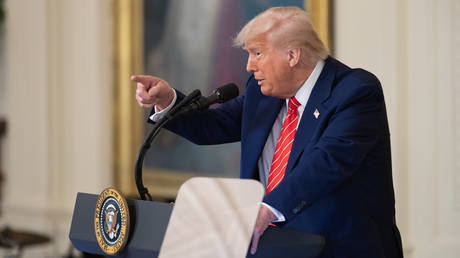‘It’s not a principle change’: Lawmakers dissect Sinema switch
“She was likely going to lose her next primary, and that’s why she’s doing this,” Rep. Colin Allred (D-Texas) said.


Sen. Kyrsten Sinema's choice to leave the Democratic Party was political, rather than a matter of principle, some of her colleagues said Sunday.
"She was likely going to lose her next primary, and that's why she's doing this. It's not a principle change," Rep. Colin Allred (D-Texas) said Sunday on CNN's "State of the Union," noting that Sinema has voted with Senate Democrats in the vast majority of instances.
"She saw the writing on the wall," Allred added.
Though Sinema's decision to become an independent will likely not have a ruinous effect on Democrats' ability to get things done with a small Senate majority, the announcement last week added an asterisk to their already narrow margins.
Sinema herself has said she doesn't plan to change the way she votes based on the switch: “Nothing will change about my values or my behavior,” she said late last week.
Both Allred and Sen. Bernie Sanders (I-Vt.) acknowledged the possibility that Democrats could run a candidate against Sinema in her next election, if she chooses to run. By leaving the party, she would avoid a primary against rumored challengers, including Rep. Ruben Gallego (D-Ariz.), and possibly put herself in a three-way general election in November 2024.
Sanders, who caucuses with Democrats, said Sunday on CNN's "State of the Union" he wants to support candidates who have the "guts" to stand up to corporate interests — and that Sinema does not.
"I happen to suspect that it’s probably a lot to do with politics back in Arizona," Sanders told CNN's Dana Bash of Sinema's reasons for leaving the party. "I think the Democrats there are not all that enthusiastic about somebody who helped sabotage some of the most important legislation."
Sanders, who has been critical of Sinema for opposing some progressive priorities in the Senate, has not had to face significant Democratic opposition in his Vermont elections. That is also true of Sen. Angus King (I-Maine), but Sinema's situation could be different if a prominent Arizona Democrat chooses to enter the race.
Sinema told CNN's Jake Tapper that her priority is to avoid being "tethered by partisanship."
"I know this probably disappointing to folks, but I'm actually not even thinking about electoral politics or talking about that at all right now," she said in an interview that aired on CNN's "State of the Union."
Saying he had "no bones to pick" with Sinema, Sen. Jon Tester (D-Mont.) said Sinema's switch still left her future in the hand of Arizona voters.
"Elections are about choices. And the Arizona people are going to have a choice now whether it's a Democrat, an independent or a Republican that represents them in the United States Senate," Tester said on NBC's "Meet the Press."
Former Sen. Heidi Heitkamp (D-N.D.) agreed Sunday that the decision was mostly about Arizona politics.
"There was so much pearl-clutching about this decision of hers, but, at the end of the day, it means nothing," Heitkamp said on ABC's "This Week."












